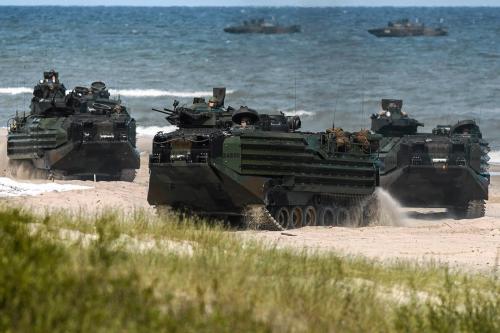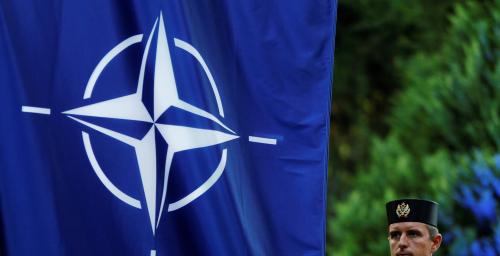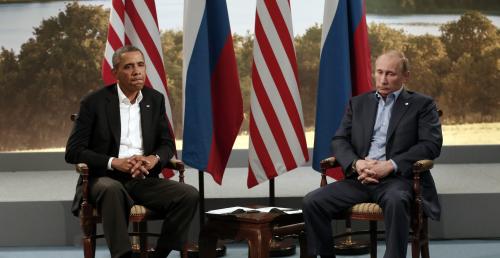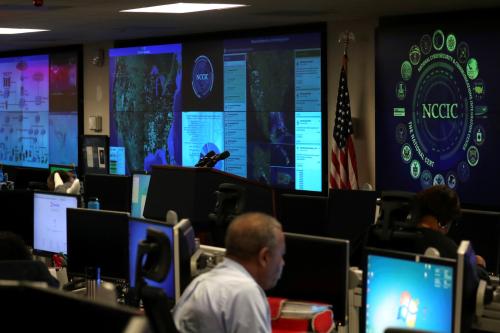In today’s opinion section of the Wall Street Journal, I argue that NATO expansion—while well-intentioned and hardly truly threatening to Russia in any military sense—has nonetheless contributed to the current crisis in U.S.-Russian relations.
NATO now has 28 members, having added 12 (including the three Baltic states) since the end of the Cold War. We owe Russia no apology for this expansion, which has achieved positive results in many places—even if it was always a debatable proposition for its possible effect on U.S.-Russian relations.
Moreover, the broader NATO enlargement agenda has left us in a dilemma in regards to Ukraine and Georgia. These countries were promised eventual membership back at NATO’s 2008 summit, but with no specificity as to when, and no promise of protection in the meantime (beyond the Budapest Memorandum of 1994, an agreement among Washington, Moscow, London, and Kiev that has obviously not sufficed to ensure Ukraine’s security). Moreover, like other previous candidates for expanded alliance membership, these countries will be expected to have resolved territorial disputes with neighbors before joining. This situation creates almost an invitation for Moscow to meddle, and cause mischief, to keep Kiev and Tbilisi off balance and out of the alliance.
Countries like Ukraine and Georgia, not to mention Finland and Sweden and other neutral nations in Europe today, deserve every right to chart their own sovereign course in terms of diplomacy, economics, and all other matters of statecraft (including various military cooperative endeavors with NATO like those that exist today, short of actual mutual-defense activities). But their membership in NATO would not be stabilizing, and there are better and more realistic ways to ensure their security.
I propose seeking a negotiated pact with a number of countries in Europe, and of course including Moscow, whereby Russia would stop militarily meddling in the neutral states and remove its forces from their territories (the Crimea issue could be finessed), in exchange for a lifting of sanctions and pledges from all to verifiably uphold the sovereignty and safety of the neutral states of Eastern Europe. Read the full op-ed here.
The Brookings Institution is committed to quality, independence, and impact.
We are supported by a diverse array of funders. In line with our values and policies, each Brookings publication represents the sole views of its author(s).








Commentary
Securing Eastern Europe without more NATO expansion
February 27, 2017